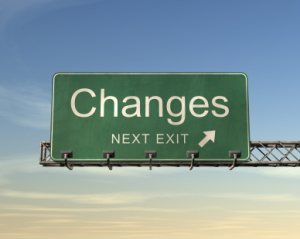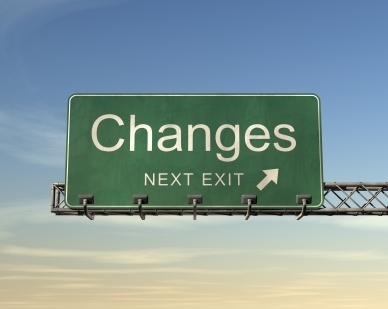Corinne A. Gregory's Blog, page 6
June 24, 2011
The unforseen impact of online “friendships”
I was speaking for a group yesterday on the topic of “Overcoming Failure to Educate,” and afterwards one of the audience members came up to me and shared a story that really drove home a point that I’m guessing many of us really don’t think about: be careful who you “friend.”
Now, I’m sure most of us are conscious of certain types of people who may request online friendship and we accept/ignore them based on our own internal radar. But let me tell you this story and see if it doesn’t impact your thinking a bit.
It seems a teen was applying for a job as security guard for the local Port Authority. He was a high school graduate, decent kid, kept himself out of trouble. Apparently a good candidate by all reason. During the interview, he was asked by the recruiter if he had ever been incarcerated or if any of his friends had been or were presently. The teen answered “no.” To his knowledge, none of his friends had ever run afoul of the law. The recruiter asked him again if he was SURE none of them had any criminal history or were currently doing time. The teen answered again “No.” The recruiter then pulls out a copy of the teen’s Facebook page, with two of his 900+ “friends” highlighted. Turns out they were both presently being held in jail for varying crimes. The teen immediately responds that he has no idea who these people are…and you can see where this is going…the recruiter asks him “Then why are you listing them as ‘friends’ on your Facebook page?”
He didn’t get the job.
Many of us have a wide following in social media because of what we do or causes we represent or “like.” Thee’s a train of thought that says, “Go ahead and accept anyone who wants to be a friend, and if they become a problem later, you can always drop them.” But the story above really makes you stop and think. You certainly can’t “know” much about 5000 friends you may have in your social media circle. What if someone is doing a background check on you for a position or opportunity, and they find you have someone “problematic” in that circle? You may be able to explain it away by saying you aren’t responsible for the actions of people who “follow” you, but it almost sounds worse to say you are just indiscriminately accepting requests of anyone who wants to connect with you, even if that IS common practice today.
I don’t have a real ready solution or answer to this. For myself, I am careful whose friend requests I accept. I generally do check out their profiles, and there are people whose requests I have blocked, for varying reasons. I’m also more likely to feel comfortable accepting the request if they have included a personal message citing some reason why they think we should connect such as mutual friends, specific interests in common, or maybe a regional proximity. But, honestly, I don’t know many of the people who ask for connections; some I do get to know better online. Some I’ve even had the pleasure of meeting later in person. But, I can’t “know” their complete history or what they do in their “offline” life.
Yes, this is a risk we take even with in-person relationships. While we think we can judge people pretty well, the media is rife with stories of people who have been duped by others they believed they “knew.” But the problem becomes compounded online both because of access and quantity, as well as the lack of opportunity to “get to know one another” with all five senses engaged.
And, it almost goes without saying that our children are particularly vulnerable in this area as our story shows. Collecting friends is both a fun pastime as well as, sadly, a sign of popularity. The friends you are picking — or that are picking you — may have an unforseen impact on your life, both short- and longer-term. We counsel our kids to be careful who you pick as your friends…but most of us don’t really think about the friends they are accepting online.
I would love your input on how you handle this issue, both for yourself and for your kids, if you have them. As I said, there’s probably no “one perfect answer,” but I’m sure many of you have strategies that are both safe and not too-restrictive. We do want to widen our networks, but it should be to ours — and our friends’ — mutual benefit, not to our detriment. We have to be both socially smart and savvy to make the right decisions.
Filed under: Business and Sales, Social Skills and Character Tagged: poor choices, risks of onine friendships, social media


The unforseen impact of online "friendships"
I was speaking for a group yesterday on the topic of "Overcoming Failure to Educate," and afterwards one of the audience members came up to me and shared a story that really drove home a point that I'm guessing many of us really don't think about: be careful who you "friend."
Now, I'm sure most of us are conscious of certain types of people who may request online friendship and we accept/ignore them based on our own internal radar. But let me tell you this story and see if it doesn't impact your thinking a bit.
It seems a teen was applying for a job as security guard for the local Port Authority. He was a high school graduate, decent kid, kept himself out of trouble. Apparently a good candidate by all reason. During the interview, he was asked by the recruiter if he had ever been incarcerated or if any of his friends had been or were presently. The teen answered "no." To his knowledge, none of his friends had ever run afoul of the law. The recruiter asked him again if he was SURE none of them had any criminal history or were currently doing time. The teen answered again "No." The recruiter then pulls out a copy of the teen's Facebook page, with two of his 900+ "friends" highlighted. Turns out they were both presently being held in jail for varying crimes. The teen immediately responds that he has no idea who these people are…and you can see where this is going…the recruiter asks him "Then why are you listing them as 'friends' on your Facebook page?"
He didn't get the job.
Many of us have a wide following in social media because of what we do or causes we represent or "like." Thee's a train of thought that says, "Go ahead and accept anyone who wants to be a friend, and if they become a problem later, you can always drop them." But the story above really makes you stop and think. You certainly can't "know" much about 5000 friends you may have in your social media circle. What if someone is doing a background check on you for a position or opportunity, and they find you have someone "problematic" in that circle? You may be able to explain it away by saying you aren't responsible for the actions of people who "follow" you, but it almost sounds worse to say you are just indiscriminately accepting requests of anyone who wants to connect with you, even if that IS common practice today.
I don't have a real ready solution or answer to this. For myself, I am careful whose friend requests I accept. I generally do check out their profiles, and there are people whose requests I have blocked, for varying reasons. I'm also more likely to feel comfortable accepting the request if they have included a personal message citing some reason why they think we should connect such as mutual friends, specific interests in common, or maybe a regional proximity. But, honestly, I don't know many of the people who ask for connections; some I do get to know better online. Some I've even had the pleasure of meeting later in person. But, I can't "know" their complete history or what they do in their "offline" life.
Yes, this is a risk we take even with in-person relationships. While we think we can judge people pretty well, the media is rife with stories of people who have been duped by others they believed they "knew." But the problem becomes compounded online both because of access and quantity, as well as the lack of opportunity to "get to know one another" with all five senses engaged.
And, it almost goes without saying that our children are particularly vulnerable in this area as our story shows. Collecting friends is both a fun pastime as well as, sadly, a sign of popularity. The friends you are picking — or that are picking you — may have an unforseen impact on your life, both short- and longer-term. We counsel our kids to be careful who you pick as your friends…but most of us don't really think about the friends they are accepting online.
I would love your input on how you handle this issue, both for yourself and for your kids, if you have them. As I said, there's probably no "one perfect answer," but I'm sure many of you have strategies that are both safe and not too-restrictive. We do want to widen our networks, but it should be to ours — and our friends' — mutual benefit, not to our detriment. We have to be both socially smart and savvy to make the right decisions.
Filed under: Business and Sales, Social Skills and Character Tagged: poor choices, risks of onine friendships, social media








June 20, 2011
You can’t teach them if they’re not paying attention…
Yes, this is a basic statement and will likely cause several “yeah, duh” reactions, but it’s surprising how overlooked this simple truth really is. When we read about the factors influencing education, we hear so much about curriculum – whether there should be national standards or not, should there be more emphasis on STEM, etc. Or, funding — there is a never-ending litany of schools/districts/states talking about how there isn’t enough money to do what needs to be done. Classroom size is another oft-debated topic — our classrooms are still “over-crowded” yet on average they have been getting consistently smaller over the last 30 years. Or how about charter schools are the better way to educate our children?
The one thing that gets VERY little attention, however, and has, frankly the biggest impact on education is student behavior. All of the above things I just mentioned are directly affected, for good or for bad, by how students conduct themselves in the classroom, yet this is virtually never addressed in any high-level discussions on how to improve education!
I know it’s a problem, both from my direct experience in the classroom as well as from discussions and feedback from teachers and administrators. Take, for example, this comment on a recent posting of mine. Steve wrote
You are right on about student behavior. It never seems to get addressed. It is a combination of helping the student act better, helping the teacher have better classroom management skills, AND setting up each individual school so the structure promotes an orderly learning environment. In the school I taught in for the last ten years we never once discussed openly how to improve these three things. You can’t do much about what kids are like when they walk in the door, but you can do a lot about what they are like when they walk out the door.
As I’ve said before, the typical reaction to poor classroom discipline is to assume the teacher needs better classroom management skills. Yet that completely overlooks whether the students have the social skills and character/emotional development that allows them to be “managed.” We make assumptions that kids should come into school with a certain basic level of behavior and conduct knowledge, but as we find, there is no “lowest-common denominator.” While we then like to place blame on “uninvolved, disengaged” parents who should be held accountable for their kids’ behavior, that, again is an oversimplification. Yes, it is the case that some parents aren’t doing what they should to prepare their kids for the classroom environment (and, life, as it turns out), but to say there is just one cause isn’t sufficient or fair.
As I’ve shared in my recent research paper, the negative impacts from students that are not adequately prepared to participate in the classroom environment are both broad and costly, from a financial as well as outcomes standpoint. If we consider merely teacher productivity and attrition, it’s over $100 BILLION dollars that is going out the window each year. Let’s put this in perspective: Race to the Top was just shy of $5B and has yet to prove itself in terms of improving education. Now, if were able to return $50B back to the schools in the form of productive time and improved student time-on-task, what impact do you suppose that will have? I can tell you: test scores will go up, discipline problems will go down, teachers will feel safer and more satisfied in their jobs, the overall image of public education will improve.
Note I said what WILL happen, not what SHOULD happen? Why do we know this? Because it’s been proven. Not just by us, but by extensive research. For those of you who haven’t read it, there was a great article published in EducationWeek (and others) back in February that specifically addressed the positive benefits of social skills education in the classroom. But this type of curriculum is still seen as an “add-on” if it’s even on education’s radar at all. Most of the time, it’s a “not-needed here” type of approach because, after all, when kids are being disruptive and unsettled they are just “being kids.”
Yet these kids can’t learn if they aren’t paying attention and a few unruly ones can wreck the learning for all. Teachers who spend much of their time trying to maintain order and focus lose not only results, but interest in trying. The schools are dinged because they can’t achieve their objectives year-after-year in spite of increasing attempts to improve things. We talk about lengthening school days or school calendar years, yet ignore that we are bleeding away 60 or more full DAYS of education in our existing school year. We talk about eliminating recess because “that’s where the problems occur” or because we need more time to focus on math, science or reading.
But we ignore the giant pink, disruptive, unruly elephant in the middle of the classroom because it somehow doesn’t fit our model of what we need to do to “fix” education. Perhaps we DO need Superman after all to remove that elephant because trying to apply logic and reason and facts isn’t working worth a darned. Because it’s not something Arne Duncan is talking about or the states’ legislators are considering it must just not be there. Better toss that elephant another peanut ’cause he’s sticking around for a while yet…it’s the only way to get HIM to pay attention.
Filed under: Education Policy, Education Reform, Social Skills and Character Tagged: disruptive students, improve test scores, productive classrooms, student engagement


You can't teach them if they're not paying attention…
Yes, this is a basic statement and will likely cause several "yeah, duh" reactions, but it's surprising how overlooked this simple truth really is. When we read about the factors influencing education, we hear so much about curriculum – whether there should be national standards or not, should there be more emphasis on STEM, etc. Or, funding — there is a never-ending litany of schools/districts/states talking about how there isn't enough money to do what needs to be done. Classroom size is another oft-debated topic — our classrooms are still "over-crowded" yet on average they have been getting consistently smaller over the last 30 years. Or how about charter schools are the better way to educate our children?
The one thing that gets VERY little attention, however, and has, frankly the biggest impact on education is student behavior. All of the above things I just mentioned are directly affected, for good or for bad, by how students conduct themselves in the classroom, yet this is virtually never addressed in any high-level discussions on how to improve education!
I know it's a problem, both from my direct experience in the classroom as well as from discussions and feedback from teachers and administrators. Take, for example, this comment on a recent posting of mine. Steve wrote
You are right on about student behavior. It never seems to get addressed. It is a combination of helping the student act better, helping the teacher have better classroom management skills, AND setting up each individual school so the structure promotes an orderly learning environment. In the school I taught in for the last ten years we never once discussed openly how to improve these three things. You can't do much about what kids are like when they walk in the door, but you can do a lot about what they are like when they walk out the door.
As I've said before, the typical reaction to poor classroom discipline is to assume the teacher needs better classroom management skills. Yet that completely overlooks whether the students have the social skills and character/emotional development that allows them to be "managed." We make assumptions that kids should come into school with a certain basic level of behavior and conduct knowledge, but as we find, there is no "lowest-common denominator." While we then like to place blame on "uninvolved, disengaged" parents who should be held accountable for their kids' behavior, that, again is an oversimplification. Yes, it is the case that some parents aren't doing what they should to prepare their kids for the classroom environment (and, life, as it turns out), but to say there is just one cause isn't sufficient or fair.
As I've shared in my recent research paper, the negative impacts from students that are not adequately prepared to participate in the classroom environment are both broad and costly, from a financial as well as outcomes standpoint. If we consider merely teacher productivity and attrition, it's over $100 BILLION dollars that is going out the window each year. Let's put this in perspective: Race to the Top was just shy of $5B and has yet to prove itself in terms of improving education. Now, if were able to return $50B back to the schools in the form of productive time and improved student time-on-task, what impact do you suppose that will have? I can tell you: test scores will go up, discipline problems will go down, teachers will feel safer and more satisfied in their jobs, the overall image of public education will improve.
Note I said what WILL happen, not what SHOULD happen? Why do we know this? Because it's been proven. Not just by us, but by extensive research. For those of you who haven't read it, there was a great article published in EducationWeek (and others) back in February that specifically addressed the positive benefits of social skills education in the classroom. But this type of curriculum is still seen as an "add-on" if it's even on education's radar at all. Most of the time, it's a "not-needed here" type of approach because, after all, when kids are being disruptive and unsettled they are just "being kids."
Yet these kids can't learn if they aren't paying attention and a few unruly ones can wreck the learning for all. Teachers who spend much of their time trying to maintain order and focus lose not only results, but interest in trying. The schools are dinged because they can't achieve their objectives year-after-year in spite of increasing attempts to improve things. We talk about lengthening school days or school calendar years, yet ignore that we are bleeding away 60 or more full DAYS of education in our existing school year. We talk about eliminating recess because "that's where the problems occur" or because we need more time to focus on math, science or reading.
But we ignore the giant pink, disruptive, unruly elephant in the middle of the classroom because it somehow doesn't fit our model of what we need to do to "fix" education. Perhaps we DO need Superman after all to remove that elephant because trying to apply logic and reason and facts isn't working worth a darned. Because it's not something Arne Duncan is talking about or the states' legislators are considering it must just not be there. Better toss that elephant another peanut 'cause he's sticking around for a while yet…it's the only way to get HIM to pay attention.
Filed under: Education Policy, Education Reform, Social Skills and Character Tagged: disruptive students, improve test scores, productive classrooms, student engagement








June 17, 2011
The “Anti-Social” Social Media
 Before I get into the meat of this post, let me say that while it is directed primarily at kids and youth, the topic is certainly be applicable to adults. I really started thinking about this a while back as part of the research I was doing for the “It’s Not Who You Know…” book. There’s a body of thought that believes technology, particularly social media, has given us a great boost in finding, building and keeping connections with people. But the reality is that it’s a “yes and no” kind of answer. Social media can be a great tool…if used correctly and appropriately. Yet, too often, it’s not. And that’s when the complications set in. Let’s look at a few of the issues:
Before I get into the meat of this post, let me say that while it is directed primarily at kids and youth, the topic is certainly be applicable to adults. I really started thinking about this a while back as part of the research I was doing for the “It’s Not Who You Know…” book. There’s a body of thought that believes technology, particularly social media, has given us a great boost in finding, building and keeping connections with people. But the reality is that it’s a “yes and no” kind of answer. Social media can be a great tool…if used correctly and appropriately. Yet, too often, it’s not. And that’s when the complications set in. Let’s look at a few of the issues:
Amount of time spent: our young people are spending increasing amounts of time on various social media platforms. According to a Kaiser Family Foundation report (2010), teens are spending an average of more than 53 linear hours a week using “entertainment media.” But, because of their talent for multi-tasking they are actually “using” a lot more time than that. Consider that this is the equivalent of more than a full-time “job!”
Another concern is what they are doing with that time. I’m not going to get into all the details of the really bad stuff like cyberbullying, lurking potential predators, and sexting in this post — that’s a huge can of worms to be opening today. But what I do want to talk about is how this online “social” time is affecting their offline social abilities. Consider:
Of your many FaceBook/MySpace…pick your platform…”friends,” how many people do you actually know? It may be a few dozen…maybe a hundred. But you can’t really form “friendships” with thousands of people, now can you? Often someone’s popularity is dictated specifically by how many followers they have. If you are a teen, is your self-esteem affected by whether or not you have a large following?
The paradigm for forming friendships or building relationships on social media is not something that easily translates into the real world. You can’t just knock on someone’s door, ask if there are any kids who live there, and suddenly become “friends.” Yet, this is essentially what a lot of social media connections are based on. You find someone who may have one or more common interests, see if they seem interesting, and ask to be their friend. Now, you may use that as the basis for later developing a friendship, but it’s a bit backwards of a model.
And what happens if you no longer want to BE friends? You click a button and sayonara. Without any real consideration for how it may affect the person you just dropped. Heck, if Hollywood stars are dumping their significant others via text messages, clearly too many people see social media as “what convenience it gives ME,” rather than something that is shared between two parties.
So much about building relationships has to do with things you can’t easily replicate on a computer. Conversations for example, are generally held in “real time” — either face to face or via phone (ok, yes, I know you can have written conversation, too, but stick with me…). There are subtleties at play such as voice, inflection, facial expressions, body language. Skype and other video chat is no substitute for real connections with people. Conversations are meant to be shared communication; how can you be an equal participant in a conversation when someone can just click “off” when they are done “listening” to you?
Of course, then there’s the whole issue of type of content that kids may be sharing online without an understanding or concern about how that may be perceived by others now, much less the potential permanence or long-term impact in the future (for more, see “Beware What You Share“)
When you see two young people literally sitting next to each other but resorting to TEXT communication rather than talking face-to-face, you know it’s gone way over the edge. I know there’s a novelty in being able to do that…I used to echat with a co-worker who was just across the office from me because we could multi-task a “conversation” while we were working on other things. But, that, too, takes its toll; we’re so used to multi-tasking that it’s hard for us to fully focus on one thing. Don’t “friends” deserve our undivided attention?
Yes, technology is taking a toll on our young people’s social abilities. When employers #1 complaint of the youth entering the workforce is that they lack the social skills necessary to operate effectively in the job market, we know there’s an issue. I mean, heck, there are stories everywhere of job candidates texting other people or responding to emails in the middle of a job interview! How do you suppose these nifty skills in online “communication” are going to impact their future success?
We don’t want our children’s online life to become more important — or more “real” — than their offline life. Technology is a tool and it does enable us to do so many things now that we never even thought possible 10/20/50 years ago. But it is a tool and should never be a substitute for real presence. There’s a whole world beyond keyboards and computer screens; we have to help our kids re-discover and value that because, regardless of what they do online, they still have to live and operate in a real, tangible world.
Filed under: Social Skills and Character Tagged: Facebook, MySpace, time kids spend on social media, youth and social media


The "Anti-Social" Social Media
 Before I get into the meat of this post, let me say that while it is directed primarily at kids and youth, the topic is certainly be applicable to adults. I really started thinking about this a while back as part of the research I was doing for the "It's Not Who You Know…" book. There's a body of thought that believes technology, particularly social media, has given us a great boost in finding, building and keeping connections with people. But the reality is that it's a "yes and no" kind of answer. Social media can be a great tool…if used correctly and appropriately. Yet, too often, it's not. And that's when the complications set in. Let's look at a few of the issues:
Before I get into the meat of this post, let me say that while it is directed primarily at kids and youth, the topic is certainly be applicable to adults. I really started thinking about this a while back as part of the research I was doing for the "It's Not Who You Know…" book. There's a body of thought that believes technology, particularly social media, has given us a great boost in finding, building and keeping connections with people. But the reality is that it's a "yes and no" kind of answer. Social media can be a great tool…if used correctly and appropriately. Yet, too often, it's not. And that's when the complications set in. Let's look at a few of the issues:
Amount of time spent: our young people are spending increasing amounts of time on various social media platforms. According to a Kaiser Family Foundation report (2010), teens are spending an average of more than 53 linear hours a week using "entertainment media." But, because of their talent for multi-tasking they are actually "using" a lot more time than that. Consider that this is the equivalent of more than a full-time "job!"
Another concern is what they are doing with that time. I'm not going to get into all the details of the really bad stuff like cyberbullying, lurking potential predators, and sexting in this post — that's a huge can of worms to be opening today. But what I do want to talk about is how this online "social" time is affecting their offline social abilities. Consider:
Of your many FaceBook/MySpace…pick your platform…"friends," how many people do you actually know? It may be a few dozen…maybe a hundred. But you can't really form "friendships" with thousands of people, now can you? Often someone's popularity is dictated specifically by how many followers they have. If you are a teen, is your self-esteem affected by whether or not you have a large following?
The paradigm for forming friendships or building relationships on social media is not something that easily translates into the real world. You can't just knock on someone's door, ask if there are any kids who live there, and suddenly become "friends." Yet, this is essentially what a lot of social media connections are based on. You find someone who may have one or more common interests, see if they seem interesting, and ask to be their friend. Now, you may use that as the basis for later developing a friendship, but it's a bit backwards of a model.
And what happens if you no longer want to BE friends? You click a button and sayonara. Without any real consideration for how it may affect the person you just dropped. Heck, if Hollywood stars are dumping their significant others via text messages, clearly too many people see social media as "what convenience it gives ME," rather than something that is shared between two parties.
So much about building relationships has to do with things you can't easily replicate on a computer. Conversations for example, are generally held in "real time" — either face to face or via phone (ok, yes, I know you can have written conversation, too, but stick with me…). There are subtleties at play such as voice, inflection, facial expressions, body language. Skype and other video chat is no substitute for real connections with people. Conversations are meant to be shared communication; how can you be an equal participant in a conversation when someone can just click "off" when they are done "listening" to you?
Of course, then there's the whole issue of type of content that kids may be sharing online without an understanding or concern about how that may be perceived by others now, much less the potential permanence or long-term impact in the future (for more, see "Beware What You Share")
When you see two young people literally sitting next to each other but resorting to TEXT communication rather than talking face-to-face, you know it's gone way over the edge. I know there's a novelty in being able to do that…I used to echat with a co-worker who was just across the office from me because we could multi-task a "conversation" while we were working on other things. But, that, too, takes its toll; we're so used to multi-tasking that it's hard for us to fully focus on one thing. Don't "friends" deserve our undivided attention?
Yes, technology is taking a toll on our young people's social abilities. When employers #1 complaint of the youth entering the workforce is that they lack the social skills necessary to operate effectively in the job market, we know there's an issue. I mean, heck, there are stories everywhere of job candidates texting other people or responding to emails in the middle of a job interview! How do you suppose these nifty skills in online "communication" are going to impact their future success?
We don't want our children's online life to become more important — or more "real" — than their offline life. Technology is a tool and it does enable us to do so many things now that we never even thought possible 10/20/50 years ago. But it is a tool and should never be a substitute for real presence. There's a whole world beyond keyboards and computer screens; we have to help our kids re-discover and value that because, regardless of what they do online, they still have to live and operate in a real, tangible world.
Filed under: Social Skills and Character Tagged: Facebook, MySpace, time kids spend on social media, youth and social media








June 4, 2011
“Change” requires DOING something different
Do you ever find yourself in a situation that seems like a  never-ending circular argument? Sometimes it seems to me that our schools are stuck in a permanent state of “Who’s on First?”
never-ending circular argument? Sometimes it seems to me that our schools are stuck in a permanent state of “Who’s on First?”
There is so much talk about how schools want to improve their present circumstances. They want their students to get better grades, achieve more in reading/math/science/technology. They want teachers to be happier and more productive. They want bullying or other anti-social behavior to diminish. They want parents to be more involved and engaged in their children’s education. The schools are full of wants and objectives…but what do they do with that?
It’s in the “do” that things fall apart. You see, in order for things to be different in the schools, something has to change. And, we all know that change is VERY hard. Even positive change. And, for many schools, districts or administrations, change is virtually impossible. Here’s what happens when you suggest change to improve their present circumstances:
Before I get too far down the road here with generalizations (anyone who has read this blog for a while KNOWS I hate rubber-stamping everyone with the same label), let me just say that I KNOW this isn’t true of all schools, so please don’t be offended if you are one of the enlightened and inspired ones who is honestly striving to make a difference. But this blog is directed at those for whom the following conditions ring true.
Well, we’d like to do something different, but we’re so strapped for budget this year that we can’t afford to do anything. (Response: ok…well, what if I showed you how to do it with no extra expense?)
Well, we’d like to do something different, but our teachers are so busy already, they can’t take on anything new (Response: I understand. What if we showed you that it doesn’t take any extra time, and, in fact saves you time overall?)
Well, we’d like to do something different, we know we need to, but we’re having management/contract/review issues that are taking up a lot of our cycles right now.
Well, we know we need to do something — we have all these problems — but our curriculum review cycle for this type of program doesn’t come up for another 2 years. We’ll likely reconsider at that time. (Internal response: so you’re just going to continue to put up with the problems for the next 3 years until you get something new in place?)
We’d really like to do something different, but we’re constrained by district-approved lists of programs (and, oh, by the way, you can’t get on the district-approved list until it’s been piloted in one or more individual schools in the district, but the schools won’t pilot you because you’re not on “the list.”)
I know this is all part of doing business with bureaucracy. But, while the schools/districts/administrators wring their hands talking about how they are committed to making things better and solving their problems, they seem to be paralyzed when it comes to taking action or consider new approaches. And, our kids’ education, our teachers’ talent, and our families and communities are suffering as a result.
I know I wrote about this the other day in a slightly different vein, but it does appear somedays that the paralysis is terminal. Newton said in one of his famous laws that “Bodies at rest tend to remain at rest unless acted upon by an outside force.” In the case of the schools, however, the outside force can’t even budge the body at rest. It’s like you are trying to save a drowning man, and not only will he not accept the life-preserver, but he continues to throw it back at you each time you toss it out.
In the world of social-emotional learning (or social skills, if you prefer), these are the challenges we’re dealing with. Increasing bodies of research prove that this is not only a needed aspect of education, but it also makes academic education so much more effective. Effective social skills education has no downside — it increases teacher productivity in the classroom, raises student time-on-task, decreases discipline issues, helps students learn more and do better on academic subjects, improves the schools culture, reduces absenteeism, makes more effective use of taxpayer dollars, and builds students’ school-to-job skills. It’s the fastest way to make real change happen in schools and it provides positive effects on all aspects of education. And schools say they know they NEED it. But, taking the next step toward implementation is like asking them to spin straw into gold.
So, while it seems that the schools desperately want change, the “yeah, buts…” stand in the way. Change must, therefore, happen by magic, I suppose. Because if it requires actually doing something, there’s always a reason for why now is not the time or it’s someone else’s job. Here we are, at the end of School Year 2010-2011 and it looks much like it did last year. How many schools will start 2011-2012 hopeful that this year things will be different? Yet, how can it be when nothing has changed?
Filed under: Education Policy, Education Reform, Social Skills and Character Tagged: change in education, improving education, increasing test scores, school paralysis


"Change" requires DOING something different
Do you ever find yourself in a situation that seems like a  never-ending circular argument? Sometimes it seems to me that our schools are stuck in a permanent state of "Who's on First?"
never-ending circular argument? Sometimes it seems to me that our schools are stuck in a permanent state of "Who's on First?"
There is so much talk about how schools want to improve their present circumstances. They want their students to get better grades, achieve more in reading/math/science/technology. They want teachers to be happier and more productive. They want bullying or other anti-social behavior to diminish. They want parents to be more involved and engaged in their children's education. The schools are full of wants and objectives…but what do they do with that?
It's in the "do" that things fall apart. You see, in order for things to be different in the schools, something has to change. And, we all know that change is VERY hard. Even positive change. And, for many schools, districts or administrations, change is virtually impossible. Here's what happens when you suggest change to improve their present circumstances:
Before I get too far down the road here with generalizations (anyone who has read this blog for a while KNOWS I hate rubber-stamping everyone with the same label), let me just say that I KNOW this isn't true of all schools, so please don't be offended if you are one of the enlightened and inspired ones who is honestly striving to make a difference. But this blog is directed at those for whom the following conditions ring true.
Well, we'd like to do something different, but we're so strapped for budget this year that we can't afford to do anything. (Response: ok…well, what if I showed you how to do it with no extra expense?)
Well, we'd like to do something different, but our teachers are so busy already, they can't take on anything new (Response: I understand. What if we showed you that it doesn't take any extra time, and, in fact saves you time overall?)
Well, we'd like to do something different, we know we need to, but we're having management/contract/review issues that are taking up a lot of our cycles right now.
Well, we know we need to do something — we have all these problems — but our curriculum review cycle for this type of program doesn't come up for another 2 years. We'll likely reconsider at that time. (Internal response: so you're just going to continue to put up with the problems for the next 3 years until you get something new in place?)
We'd really like to do something different, but we're constrained by district-approved lists of programs (and, oh, by the way, you can't get on the district-approved list until it's been piloted in one or more individual schools in the district, but the schools won't pilot you because you're not on "the list.")
I know this is all part of doing business with bureaucracy. But, while the schools/districts/administrators wring their hands talking about how they are committed to making things better and solving their problems, they seem to be paralyzed when it comes to taking action or consider new approaches. And, our kids' education, our teachers' talent, and our families and communities are suffering as a result.
I know I wrote about this the other day in a slightly different vein, but it does appear somedays that the paralysis is terminal. Newton said in one of his famous laws that "Bodies at rest tend to remain at rest unless acted upon by an outside force." In the case of the schools, however, the outside force can't even budge the body at rest. It's like you are trying to save a drowning man, and not only will he not accept the life-preserver, but he continues to throw it back at you each time you toss it out.
In the world of social-emotional learning (or social skills, if you prefer), these are the challenges we're dealing with. Increasing bodies of research prove that this is not only a needed aspect of education, but it also makes academic education so much more effective. Effective social skills education has no downside — it increases teacher productivity in the classroom, raises student time-on-task, decreases discipline issues, helps students learn more and do better on academic subjects, improves the schools culture, reduces absenteeism, makes more effective use of taxpayer dollars, and builds students' school-to-job skills. It's the fastest way to make real change happen in schools and it provides positive effects on all aspects of education. And schools say they know they NEED it. But, taking the next step toward implementation is like asking them to spin straw into gold.
So, while it seems that the schools desperately want change, the "yeah, buts…" stand in the way. Change must, therefore, happen by magic, I suppose. Because if it requires actually doing something, there's always a reason for why now is not the time or it's someone else's job. Here we are, at the end of School Year 2010-2011 and it looks much like it did last year. How many schools will start 2011-2012 hopeful that this year things will be different? Yet, how can it be when nothing has changed?
Filed under: Education Policy, Education Reform, Social Skills and Character Tagged: change in education, improving education, increasing test scores, school paralysis








May 29, 2011
Memorializing Memorial Day
Yes, tomorrow is Memorial Day. Many of us think of it as the official start of summer. Perhaps it's marked by the Indy 500 race (which is today, BTW). Or, if you are from the South or are very aware of fashion etiquette, it's also the first day ladies may decently wear white shoes.
 All of these may be true, but the real message behind Memorial Day is often overshadowed by the celebrations and festivities. It's a day to remember.
All of these may be true, but the real message behind Memorial Day is often overshadowed by the celebrations and festivities. It's a day to remember.
Since our country was founded more than 200 years ago, many people have dedicated themselves to keeping us safe and free. For some, it meant giving their lives in the process. It is these people whose memory we honor on Memorial Day. While tomorrow is an American holiday, it's one we need to keep in our hearts regardless of where we are.
At present, I'm in Grand Cayman on business (and sneaking in a little vacation, too, if I'm to be completely honest!). What we have planned for tomorrow is to host an "old-fashioned American Barbecue" for some of our Caymanian friends. Steaks, potato salad..there may even be an Apple
Pie in it somewhere, along with "home-shaken buttermilk ice cream (thanks, to Food Network Magazine for this one…we have portable ice cream that will be a blast for the kids to take turns "shaking" it to chill). However, at some point during the fun, we will be making a toast to the fallen and thanking them for their sacrifice.
For me, though, I'll be remembering someone else, too, who left us last Memorial Day. No, he didn't serve in the military, but he was the son in a military family. Christian Taylor took his own life last Memorial Day as a final escape from the bullying that had been tormenting him for years. I've written about Chris before and have gotten to know his mother, Lisa Williams quite well in past several months. I know Memorial Day is supposed to be about the military men and women who have left us, but there's room in my heart for Chris and his family as well.
Yes, "Happy Memorial Day" is one aspect of this holiday we've been granted, and there is certainly a lot to celebrate. But, if we consider that one of the definitions of "celebrate" means "to honor (as a holiday) especially by solemn ceremonies or by refraining from ordinary business" (source: www.m-w.com) it's clear that spirit of the day is to pay our respects and honor those who have died so that we can remain safe and free. That sentiment travels well and doesn't require any excess baggage fees so I encourage all Americans — whether "home" or abroad, to take a moment and "celebrate" the memory of those who served and the legacy they left.
Filed under: Bullying and School Violence, Current Events Tagged: Christian Taylor, heroes, Indy 500, Memorial Day, ultimate sacrifice, US military








May 16, 2011
"Congress Must Pass Law to Prevent Teenage Bullying in School" – Say WHAT??
Yes, this truly is the subtitle of a new posting by the Center for American Progress this month. The post, entitled "More than a Bully Pulpit" is insisting that Congress get on with passing laws addressing bullying in schools.
 Conceptually it sounds ok — we all know that bullying is running rampant in so many of our schools. But I have some problems both with what's being proposed, and what it's actually supposed to accomplish.
Conceptually it sounds ok — we all know that bullying is running rampant in so many of our schools. But I have some problems both with what's being proposed, and what it's actually supposed to accomplish.
First, if you read the post, American Progress is implying that the issues of bullying and protection for students, is largely a LGBT one. The post begins by citing new research that indicates students that are gay, lesbian, bi-sexual, or trans-gender students that suffer bullying experience "long-term effects extending well into young adulthood." I agree, that is very likely true. However, this can be said of ANY child, not just an LGBT student.
Second, the two pieces of legislation that are being proposed can't really be called "prevention" methods, at all. One, the "Student Non-Discrimination Act," talks about prohibiting "public schools from discriminating against students based on their sexual orientation and gender identity, and require schools to respond to harassing behavior." Uh, let me see…aren't schools already required, by virtually every STATE in the country, to act on bullying in schools? How are the schools expected to respond? By suspending students for 2-3 days of "home time" as so many do now? How will this "prevent" bullying?
The next one, the "Safe Schools Improvement Act," is described as requiring "schools receiving federal funds to adopt policies that specifically prohibit bullying and harassment based on a range of student characteristics, including sexual orientation and gender identity." I'm pretty danged sure that again, most schools have policies that "prohibit bullying." I can't think of a single one that actually allows it by policy. But here, my question is: "how are we going to determine the range of student characteristics for which bullying is prohibited?" Clearly gender identity is protected, but does that mean you may not be bullied for being LGBT, but if you are hetero, it's ok? Perhaps you can't bully the overweight child, but if you are thin, you happen to be fair game?
No, I'm not trying to nitpick; I'm just trying to point out that once again, we are trying to apply bandaids to surface "bleeders," when the severed artery goes untreated.
Bullying is not an LGBT issue, folks. As I've said before, it is an "equal opportunity epidemic." And it's one that you cannot, will not, legislate out of existence. Getting the "feds" in on it will not automatically make it more effective.
Are students with "gender issues" bullied? Of course they are. No argument there. But, so are straight kids. Kids with acne; kids with weight issues — heck, I was bullied as a child because I was passionate about horses, for crying out loud. "Different" is in the eye of the beholder and the reality is that kids pick on other kids because of power and self-esteem issues, not just because they are "anti-gay" or "anti-anything." So, to try to legislate that underlying problem away is folly.
Yes, consequences need to be there for aberrant behavior. BUT, you have to address the behavior first. Bullying is a behavior and character issue; work on those and you'll see you have to apply the stick a lot less often, and it won't require the "big minds" to spend time and energy on a problem that cannot be solved at their level. It's just another activity that makes us "feel good" that someone is doing something about the problem.
Filed under: Bullying and School Violence, Current Events Tagged: American Progress, GLSEN, laws against bullying, LGBT, teen bullying











